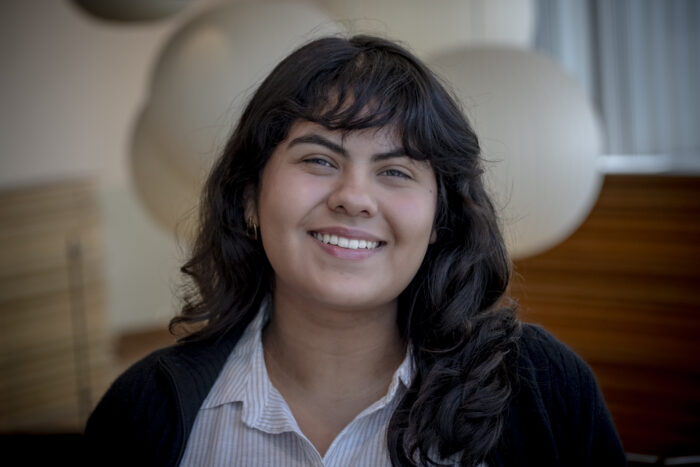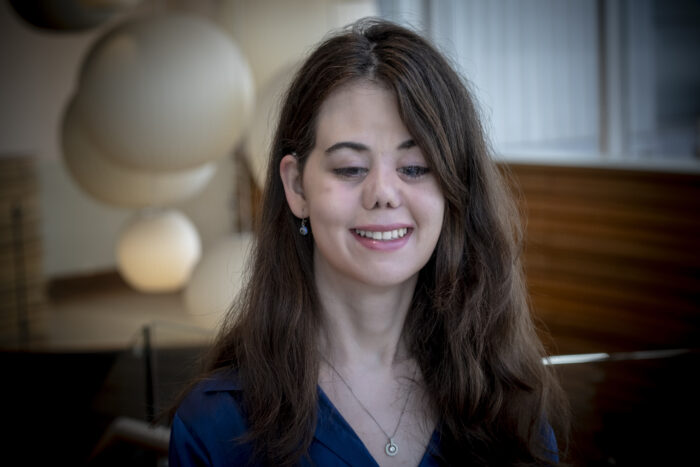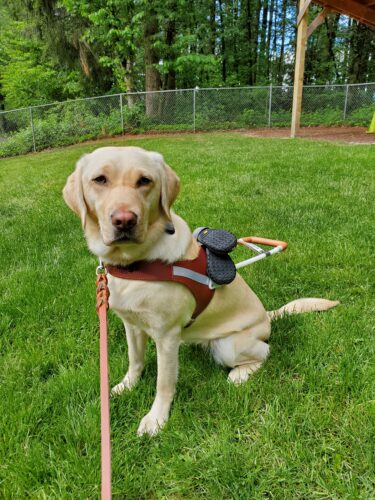More Than a Paycheck: Seattle Children’s Summer Scholars Program Provides Path to Science Careers
8.8.2023 | Colleen Steelquist
This story is part one of an On the Pulse series. Read more in part two.
 In the downtown labs of Seattle Children’s Research Institute (SCRI) this summer, 49 capable and curious college students are working side by side with scientists they might join as peers one day, demonstrating a summer job can not only help pay for expenses, it can cultivate a career.
In the downtown labs of Seattle Children’s Research Institute (SCRI) this summer, 49 capable and curious college students are working side by side with scientists they might join as peers one day, demonstrating a summer job can not only help pay for expenses, it can cultivate a career.
“It’s part of the investment Seattle Children’s makes in aspiring scientists, beginning in kindergarten and throughout a researcher’s career, with programs at every level specifically for those historically underrepresented in biomedical research and science,” said Dr. Amanda Jones, senior director of Education Initiatives, who oversees science education efforts at Seattle Children’s.
From the Science Adventure Lab to Invent at Seattle Children’s Postdoctoral Scholars Program, Seattle Children’s works to inspire and develop the next generation of talent in research and medicine.
The SCRI Summer Scholars Program, offered by the Science Education team in partnership with Seattle Children’s Center for Diversity and Health Equity, is a win-win. Scholars gain research experience and career exposure while being thoughtfully mentored, and the researchers and lab teams gain valuable staffing, nurture skills and live out Seattle Children’s values of building an anti-racist workforce.
In addition to being paid for their efforts, all scholars’ costs related to the program — from bus passes to housing to lunches — are covered to ensure all interested students can apply, regardless of financial resources.
On the Pulse introduces a few of the 2023 Summer Scholars:

Abigail Garcia is a University of Washington (UW) student majoring in medical anthropology and global health. She has done bench research in two UW labs and expects to graduate in 2025. She also volunteers as a Spanish-language medical interpreter at a nonprofit clinic.
This summer, Garcia is working in the Equity, Navigation, Communication, and Healthcare Outcomes REsearch (ENCORE) Lab with Dr. Casey Lion in the Center for Child Health, Behavior and Development. Their research is focused on creating a health care system that equitably provides care for children from historically marginalized populations through communication tools such as system navigation and language access.
“I and the rest of the ENCORE lab team contribute to this effort by providing unique perspectives on the health care system,” Garcia said. “All of us come from different backgrounds which helps us catch different things when it comes to reviewing protocols or interviewing research participants.
She recalls participating in her first lab meeting this summer: “I was furiously writing down notes, trying to absorb everything people were saying while also making connections to my past experiences to provide solutions to problems. It is beyond satisfying to use my skills in interpretation and in bench research to come to a different conclusion than everyone else,” she said.
“Before this experience, I didn’t often see women of color in the careers I wanted to be in, and now I am surrounded by them,” Garcia said. “Seattle Children’s follows through with their intention of creating a more diverse work environment.”

Kathrina Goodwin is assisting Dr. Arti Desai’s Patient Reported Outcomes team in the Center for Child Health, Behavior and Development in researching technology solutions to provide equitable care for children with chronic conditions.
Goodwin is helping develop a survey that measures the relationship between a patient’s health outcomes and quality of life. She assists with data collection at the hospital, data analysis and sharing findings. She also offers feedback about disability inclusion in research projects.
She is no stranger to Seattle Children’s Hospital and was a patient in the Craniofacial Center from age 4 to 21.
“I was born with a few craniofacial differences that impacted my speech and breathing,” Goodwin said. “The efforts of my incredible care team were one of my motivations to pursue a career related to medicine. Seattle Children’s holds a special place in my heart.”

With her guide dog, Julia, by her side, Goodwin interviews young survey participants at the hospital. “I remember one child saying, ‘I’ve been to the pool and seen a puppy — my day has been made!’ Interacting with families reminds me that the research we are conducting will make a positive impact on patients,” she said.
With her recent degree in international relations from Ontario’s Western University, Goodwin is planning a career in global health and dreams of working for the World Health Organization in policy research after graduate school.
“Health research tends to evaluate communities of interest as a generalized whole, resulting in the underrepresentation of minority individuals. This has a direct impact on how policy is decided, which perpetuates the marginalization of various gender, racial and ability groups,” she said.
“As a woman with a disability, I want to enhance disability representation in global health since many people in my position are forgotten about or left behind.”
Generous support from our community makes the SCRI Summer Scholars Program possible. If you would like to help champion the next generation of researchers, please consider making a donation.